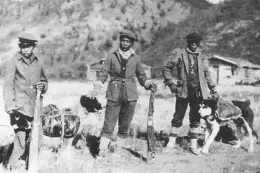The population of Liard First Nation now have an opportunity to learn and master the Kaska language, thanks to the support provided by the Canadian government. Funding for the project was announced in February 2013 by the Canadian Heritage and Official Languages ministry. This generally means that it will be possible for students and anyone else who is interested to learn the language to attend language classes. Part of the project includes paring learners with fluent language speakers to mentor them and availing resources online so that interested persons can easily access them.
Kaska is spoken by the Kaska people in Canada. The Kaska people can be found in the south eastern parts of the Yukon territory and in British Columbia. There are different dialects of the language as a result of geographical differences. Fluent speakers will not have a problem understanding other dialects. Younger speakers tend to have a harder time comprehending different dialects. Tagihs, Sekani and Tahltan languages are intelligible to Kaska speakers, even though they are completely separate languages from Kaska. These languages, together with Kaska are collectively referred to as Nahane. Kaska is an Athabascan language. There are about 400 people who speak Kaska. Most of the speakers are adults, with a few young generation speakers. English is used by most Kaska speakers. The alternate spelling of the language is Casca.
There are various existing language programs that are dedicated to the teaching and development of the Kaska language. This includes programs runs by various schools such as at the Johnson Elementary school in Watson Lake, at the Watson Lake High School and at the Ross River School. Some schools that teach the language can also be found in British Columbia. This includes at Good Hope Lake and Lower Post. Generally, children in Kindergarten and grade one learn the language. Children from grade two and above can choose whether to continue studying the language or not. The Yukon Native Language Center also holds annual workshops where teaching and learning materials are produced. This includes print books, computer programs and audio books.
